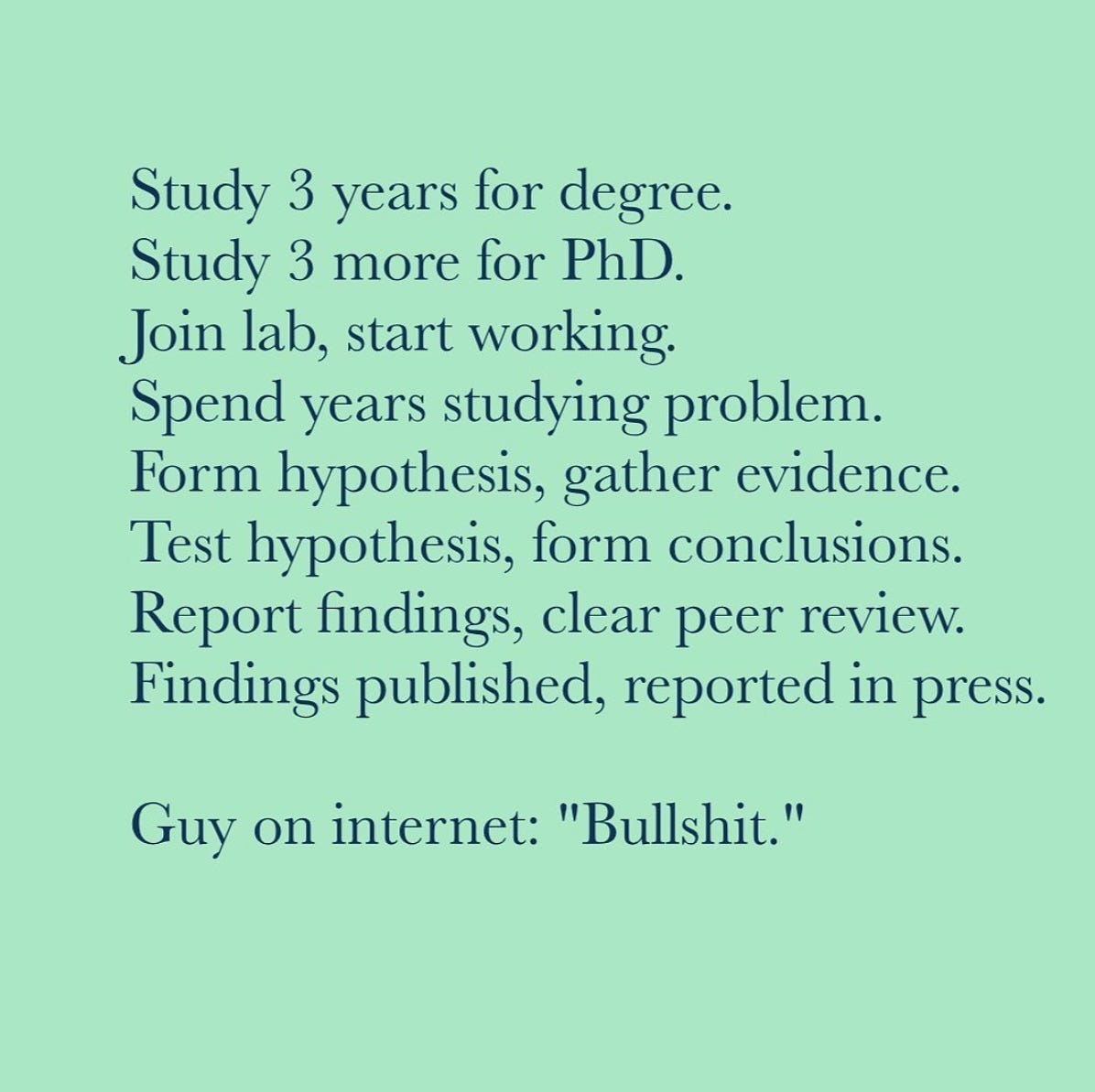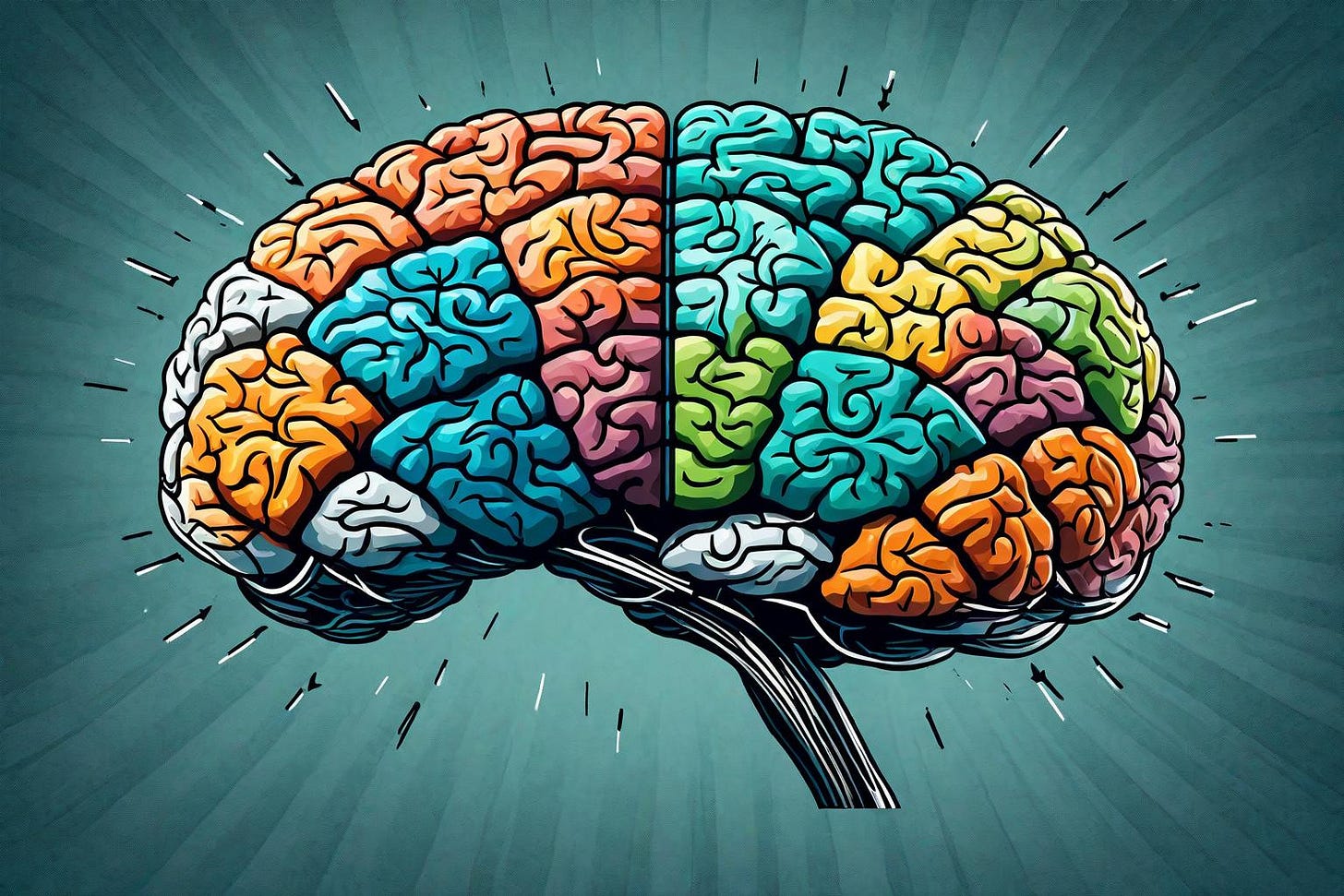Learning in the age of short-form videos
Avoiding the pitfalls. A personal reflection. Fact-check, explore and build a strong foundation for deeper understanding.
Do you like YouTube Shorts, Instagram Reels, TikTok, or any other short video streaming platforms?
You probably like it, right? Yeah, me too. It's a quick and effortless way to relax.
Now I'll rephrase that question.
How do you like the educational and informative videos in this format? Do you stumble up on a lot of new interesting topics?
And if that is a yes, how do you process all this information further?
Save the content for later, or, start exploring and fact-checking on the topic?
I used to tap this "save" button a lot. But then I started to feel overwhelmed. It's because, either I never looked at it again, or once it gets out of hand, that's a lot of info to revisit. Turns out, this habit was contributing to my procrastination.
At a point, I started to control this habit. If a topic is new to me and if it is interesting, I dive right in and start asking questions to any AI platform. Sometimes I ask the same question everywhere. Because I often find different perspectives. Sometimes some responses feel like hallucinating. It is also very important to look out for the sources.
Yes, it is a lot of work. But we are living in an era, where everyone is an educator or a news media. We need to make sure the info we consume is from trustworthy sources. At least, a reputation in the topic.
Have you noticed this shift?
Nowadays everyone is discussing a topic by saying “Have you seen this reel?” or “I saw it on TikTok”. It's interesting how conversations have changed, right?
This format has a good influence on the society.
Influencers call this bite-sized learning. It is also known as microlearning.
There is no guarantee that an influencer will present a topic in one minute with full knowledge. They might be only looking to create content.
I'm not pointing anyone in particular. Just observing patterns. They may not have the necessary time or expertise to convey the full depth of knowledge on a particular topic. So they prioritize catchy clickbaits. Like the tip of the iceberg. This type of learning may affect our judgments and further understanding.
There's this video showing how high tides and low tides are caused by the moon, but it only demonstrates the moon. While the moon is the main reason for tides, the sun also has a supporting role. It got a lot of likes, shares, and positive comments, some people asked questions that weren't answered (yet). It's one example of how this type of content can create confusion among the viewers. That's a big problem in the long run. That's how I feel.
I know that creators aren't always focused on making sure their content is super reliable, but it's definitely a plus. Like, it's a good idea to at least mention their sources. It just makes everything more transparent.
From their perspective, it’s understandable that no one wants to watch lengthy videos. If that is the case, at least mention "This is a many-part video series" or something like that.
Anyway, it's up to each of us to decide whether to believe what we're told or take it with a pinch of salt. We can choose to accept information at its face value, question its validity, or simply ignore it.
The downside of all these short-form videos?
Our attention spans are shrinking. We're used to getting everything in short, digestible clips. Yes, it's convenient, But, it's also affecting our capacity to concentrate on more complex, lengthy content.
From libraries to AI
Does anyone remember the library era? How much time and effort was needed to obtain a piece of information? We had to ask around first, then need to find that book, go through every page, take notes, sometimes re-read, and then process.
Now think where we are. If there is a doubt about anything, we can chat with an AI at any given moment. That too, responds within seconds. We don't have to wait till morning to go to the library. We're actually in a superfast era in the case of obtaining information.
I don’t consider learning to be a linear process. I mean, if you have a one-hour tutorial, you can't learn that in exactly one hour. You may stuck up on terms and other confusions along the way. So you have to jump back and forth.
Learning a topic is like exploring a tree with many branches. These branches are all the small details that support the tree's growth and survival. So the sum of all the nitty gritty things that come with a topic helps you to understand the topic even better.
Exploring these details makes learning more engaging and worthwhile, at least for me!
Ask every question you have, and write the points. Or just write a blog about your learning. I often fall into many rabbit holes. So I try to write about it and I get a better understanding of it. As we move forward, there is a chance that we will forget some of what we have learned. So these blogs help us to revisit and get the sense back in a moment.
Learning with AI is free, accessible, and convenient. Because it is a chat model. You can pause and come back later. Absolute freedom in learning.
I really wish I had access to this technology during my school days. Sadly, I didn't have internet access back then. I'm learning a lot of things these days. Basic education feels kind of free now, right? With so many online resources and tools, it's easier than ever to learn new things.
I mean, you can ask any number of questions, stupid or a tricky one, that too any time, and you will get an answer momentarily. You won’t be judged. It's truly fascinating.
Charlatan traits
Some people do a quick internet search, skim through a few paragraphs, and then act like they're experts on the topic. This can be pretty frustrating. It's like they think they know everything after reading a few paragraphs.
It's important to remember that true understanding and expertise come from a deeper engagement with the subject, not from just a glance at the surface. That's why higher education takes years to complete, to give you a thorough understanding!
You can decide when to pause your learning. Sometimes, things can get complex and make learning feel like a chore. That's just how it goes! Learning is a continuous journey - we're never truly finished. Our knowledge is always growing.
Diving into new ideas feels pretty thrilling. Like, I’m discovering secret gems in this big, mysterious world.
My approach to learning is 'learn, unlearn, and relearn'.
Unlearning can be a real challenge, kind of like discovering a rotten wood edge and after careful evaluation, realizing everything attached is bad too. Then we have to replace it all. It is essential for sustainability.
The people who deny science…
The fun fact is that they all preach critical thinking. But then they all fall for these pitfalls too. If a topic is conveyed in a story or conspiracy theory format, it is easy to sell. They all speak the same words and language. It is easy to identify them. It is not their fault. They easily fell into those who prey.
People often seek information that confirms their existing beliefs and disregard evidence that contradicts them. Yes, it is the confirmation bias.
In today's world, issues like ideological divides, confirmation bias, and the "us vs. them" mentality are more common than ever, leading to social division.
It is understandable that people like to surround themselves with like-minded individuals and avoid differing viewpoints. But becoming less open to new information, contributing to a growing divide.
One can polarize any group with enough of these mindsets.
Social engineering
With a large following, any individual who knows how people think can train them in their own mental models. Shaping their beliefs and attitudes. This is dangerous, as it's like molding clay that hardens over time, making it tough to change.
This is why it is crucial to encourage critical thinking and healthy skepticism, both in ourselves and in others. Question everything, until you get an answer.

Some people are even training AI models in favor of their beliefs. It is possible that these people might start to say “I confirmed it with this AI”.
- Another issue coming up.
This is why I believe foundation-level education is important to pursue self-learning. It equips you with the skills to analyze, process, and retain information.
Group thinking and herd mentality are significant risks. When people feel a sense of belonging to a community, they may blindly follow the group's beliefs and behaviors without critically evaluating them. This can lead to a dangerous echo chamber where misinformation is amplified.
Learning is a continuous process. Approach it with curiosity, skepticism, and a willingness to explore different perspectives.
I’m really glad that I wrote this blog. I've been thinking about this topic for days, and getting it all down feels super satisfying.




